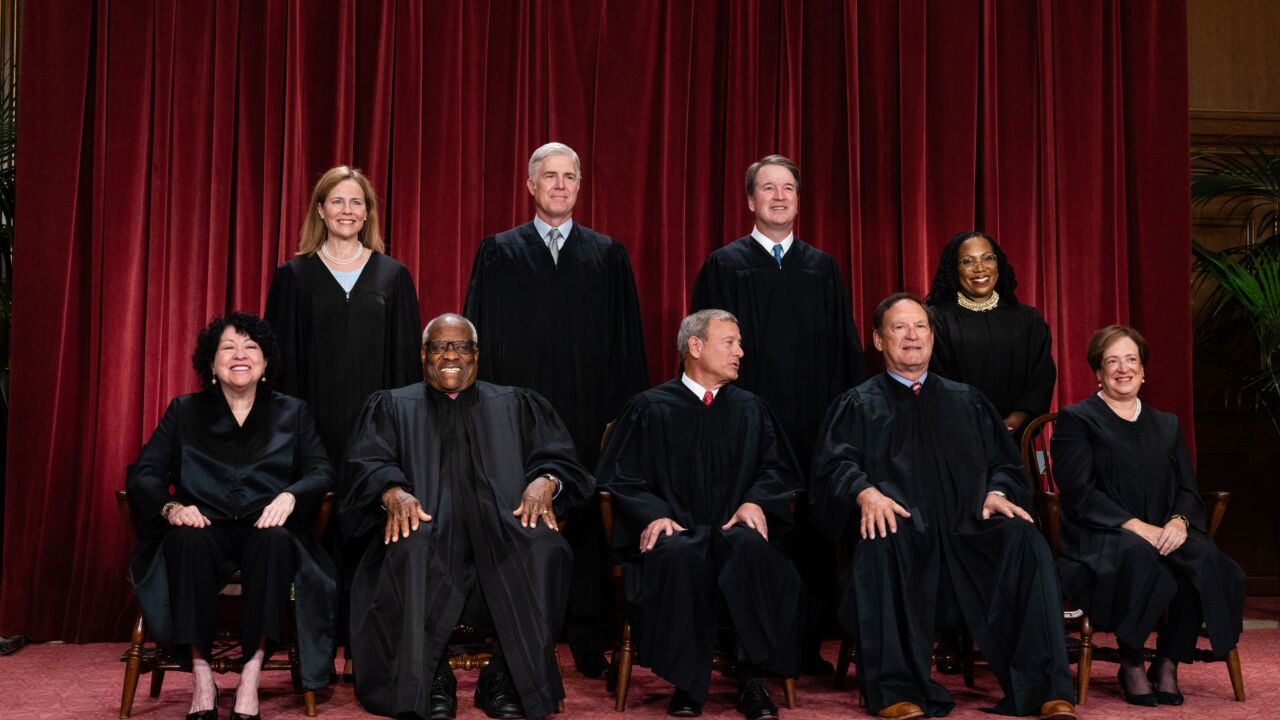-
Kevin Meyersburg, who is white, says in a lawsuit that the Wall Street investment bank terminated his employment and replaced him with a Black woman who is less qualified for the position. Morgan Stanley declined to comment.
September 1 -
A Texas judge dealt the Consumer Financial Protection Bureau a setback that has changed the bureau's calculus for furthering its near-term agenda. But an ambitious Supreme Court could also call all of the bureau's final rules into question.
August 4 -
Two bank trade groups have asked the Consumer Financial Protection Bureau to relieve all banks from complying with its small-business lending rule until after the U.S. Supreme Court decides whether the bureau's funding is constitutional.
August 3 -
The Consumer Financial Protection Bureau issued only 20 enforcement actions in 2022, but some observers say the enforcement numbers belie the results that director Rohit Chopra is getting from other ways of holding companies accountable.
June 5 -
A federal appeals court ruled in favor of the Consumer Financial Protection Bureau, setting up a court split ahead of a highly anticipated Supreme Court hearing in October. The Fifth Circuit previously ruled that the agency's funding mechanism violates the Constitution's separation of powers doctrine.
March 23 -
The Consumer Financial Protection Bureau has asked the high court to overrule a lower-court decision that threatens its funding structure. The justices didn't accept the case on Tuesday, but experts say it could still make the cut in the coming week.
February 21 -
The deal has a $10 million prefunding account that could purchase additional eligible receivables during a three-month period after closing.
February 14 -
Townstone Financial in Chicago had been accused of discriminating against certain consumers by trying to discourage them from applying for home loans. However, a judge ruled that federal law protects only actual applicants.
February 6 -
The Consumer Financial Protection Bureau and the state attorney general claim Credit Acceptance Corp., an indirect auto lender, deceived thousands of borrowers by failing to disclose and include finance charges in calculating the cost of a car loan.
January 4 -
Many experts think the Consumer Financial Protection Bureau's funding through the Federal Reserve could be the fatal flaw in the Dodd-Frank Act that created the agency, but differentiating the CFPB's structure from others may be tricky.
December 15 -
Early next year the 2nd Circuit Court of Appeals is slated to consider whether certain loans are actually securities.
November 29 -
The case involved a customer who was charged $100,000 in legal fees when he tried to pay off a commercial mortgage early. After the borrower waged a nearly decadelong legal fight, a Florida court ordered the bank to reimburse a portion of the fees.
November 22 -
Legal experts are gaming out the various options for the CFPB after a three-judge panel of the U.S. Court of Appeals for the 5th Circuit ruled on Oct. 19 that the bureau's funding is unconstitutional.
November 1 -
An appeals court ruling last week found that the Consumer Financial Protection Bureau's funding structure violates the Constitution, but another court filing shows how the agency might fight back.
October 26 -
The class-action lawsuit was brought on behalf of mortgage borrowers who were allegedly placed into forbearance during the early days of the pandemic without their consent.
September 16 -
The state Supreme Court heard oral arguments in a lawsuit involving one of the nation's largest debt buyers. At issue is how much detail the industry must disclose about what consumers allegedly owe.
August 31 -
The company has filed a lawsuit against the banking commissioner for threatening to end its partnership with a bank that enables consumer loans to exceed the state’s 36% interest rate cap. OppFi’s argument: Its bank partner is the true lender.
March 10 -
The bureau said two rules related to communications with debtors will go into effect as originally planned on Nov. 30. The agency had previously proposed an extension to consider consumer advocates' concerns about the regulations.
July 30 -
DMB Financial, a debt-settlement firm near Boston that operates in 24 states, agreed to pay $5.4 million in restitution to consumers for allegedly charging upfront fees before providing any service, the CFPB said.
May 17 -
The Consumer Financial Protection Bureau disputes a district court ruling that misconduct claims against the company were already covered by a previous settlement.
April 22


















